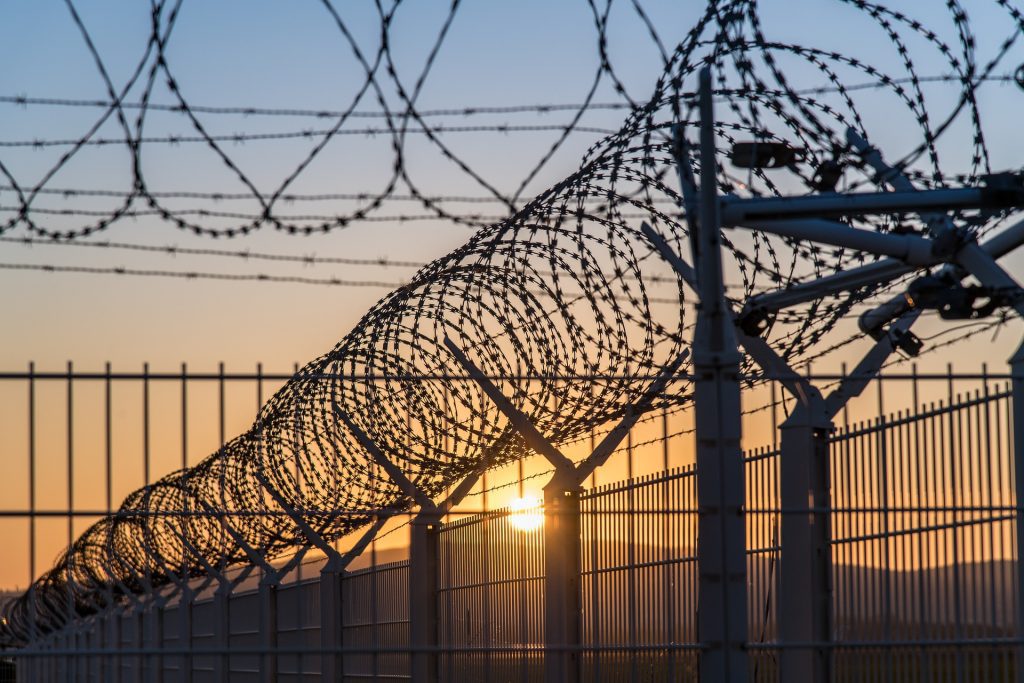
18 May Mental Health and Incarceration in America
May is Mental Health Awareness Month in America, an appropriate time to highlight criminal justice programs seeking to stem the automatic flow of people with mental illness into jails and prisons, furthering America’s history in leading the world in mass incarceration.
In the wake of the COVID-19 pandemic, mental health challenges in the prison population have increased from pre-pandemic rates. Observers acknowledge that COVID-19 created a parallel mental health epidemic that extends to incarceration. Mental health court programs (or “specialty dockets”) exist at both the federal and state levels. They must be funded and expanded, as the need for mental health support for the incarcerated has never been greater.
The Federal Bureau of Justice Assistance aims to reduce unnecessary confinement.
Federally, the Bureau of Justice Assistance (BJA) functions under the auspices of the Department of Justice (DOJ). BJA’s stated mission is laudable: to work with communities, governments and nonprofits to reduce crime, recidivism and unnecessary confinement and promote a fair and safe criminal justice system.
To that end, the BJA administers grants to further the development of federal criminal justice policies, including concerning mental health. The BJA Mental Health Courts Program funds mental health courts and other projects. These courts and projects seek to make system wide improvements in how the federal government addresses the needs of adults in the criminal justice system who suffer from mental illness or disability.
There are more than 150 mental health court programs across the country.
Research shows that a disproportionate number of criminal defendants and incarcerated people suffer from various forms of mental illness and substance abuse. Federal and state criminal justice systems recognize that incarceration alone is not a complete answer to the challenges posed by untreated mentally ill people.
The traditional prison setting does not account for the needs of those struggling with their mental health. Yet the justice system must to more to address mental illness. Failure to confront the mental health needs of those in the system renders the system ineffective.
Today, federal and state courts have established mental health courts (or specialty dockets) that can mandate and oversee mental health treatment instead of incarceration in appropriate cases. Mental health court programs bring together prosecutors, judges, defense attorneys and mental health service providers. These programs require close collaboration between criminal justice and mental health professionals. Together, they better serve people’s needs and lower their recidivism risk.
For the most part, mental health court programs handle nonviolent defendants diagnosed with mental illness, including people with combined mental health and substance abuse disorders.
According to BJA, more than 150 federal mental health courts exist, and more are in the planning stages. The need is great. And it is encouraging to know that the federal efforts to meet the needs are on the rise.

Over 44% of incarcerated people have mental health challenges.
Criminologists longing to understand why people commit crimes have established the connection between criminal behavior and mental health issues. Some basic statistics are helpful to put the scope of the problem in context.
A June 2017 Special Report from the DOJ Office of Justice Programs’ Bureau of Justice Statistics concluded that about 44% of incarcerated people in the United States had a diagnosed history of mental health problems. Many people with mental health illnesses before incarceration never even knew so beforehand. For those who knew, most reported major depressive disorder.
And an Urban Institute March 2015 report found mental health challenges for
- 56% of people incarcerated in state prisons,
- 45% of people incarcerated in federal prisons and
- 64% of people in jails.
Often without access to appropriate medical treatment, many people with mental health challenges also find themselves in legal peril. And, while in custody, incarceration fails to meet their mental health needs. Indeed, as many as 66% of people in federal prison have reported not receiving any mental health support while incarcerated. As such, incarceration fails to prepare people with mental health support needs for successful re-entry into the community.
We fare no better at the state level. According to the Treatment Advocacy Center, 44 states hold more people with mental illness in a jail or prison than in their psychiatric hospitals. Florida, for example, which ranks 50th in mental health funding, admits over 125,000 people with mental illness into its jails and prisons each year. As reporters have observed, Florida’s state prison system is, in essence, the state’s largest mental institution.
Mental health treatment in jails and prisons at both the state and federal levels can be better.
Ohio’s mental health court program provides a role model.
With over 244 specialty courts, Ohio is nationally known as a leader in establishing mental health court programs. Each specialty court meets very specific requirements, and the state’s highest court evaluates and approves it before rollout. Moreover, Akron is a teaching location for a federal program. That program helps other courts establish mental health court programs of their own.
The Ohio mental health court program is instructive. In Ohio, mental health court judges initially refer defendants to the specialized mental health court docket when they believe the person would be a good candidate for the program.
After a thorough evaluation to determine needs and potential benefits on a case-by-case basis, the specialty docket team places qualified people in a court-monitored mental health program instead of incarceration. A candidate’s mental health assessment may include a psychiatric evaluation and a review of their criminal history, among other things.
The first step is to stabilize the person medically under appropriate care. The participant does not return to court to face their criminal charges before that occurs. They then return to court with a lawyer, plead guilty to agreed-upon charges and officially enter the mental health court program.
Ohio’s approach looks more like treatment-based probation than regular probation.
The program is akin to receiving a treatment-based probation sentence. Treatment-based probation is intensive and much more restrictive than regular probation.
For one, case managers supervise each participant to address their issues and prevent recidivism. To remain in the program, participants must fully comply with their treatment plans. Their case manager and the court work together to ensure that the person stays on prescribed medication and follows all other medical guidance.
The case manager also helps people learn to take responsibility for managing their mental illness. Case managers oversee substance abuse treatment for alcohol or drug addiction, and also assist with finding reliable housing and employment if needed.
Participants have to appear in court at mandated intervals to discuss their progress. Mental health court judges are said to take an active role in each case. Depending on progress and compliance, participants can receive rewards for accomplishing goals and reaching milestones. They can also receive sanctions for not meeting program requirements, including community service, house arrest, or jail. Failure to continue on prescribed medications, for example, can be a basis for sanctions, as is a failed drug test.
In Ohio, the program lasts approximately 2 years. Successful completion requires that a person meet all treatment goals. This includes complying with appropriate medication, remaining sober and attaining approved housing and employment.
At the end of the program, participants should have the skills necessary to remain healthy, law-abiding members of their community.

The advantages of mental health court programs are many.
As noted above, the initial goal of a mental health court program is to get participants stabilized and on appropriate medications. This step is crucial. In cases where the person does not voluntarily comply with doctor recommendations for medications and related medical treatment, the mental health court judge may recommend hospitalization to ensure compliance.
Through the court’s power and hands-on oversight, participants get into appropriate treatment settings more quickly than would be the case through the prison system. Mental health court programs help connect people to treatment much faster than traditional paths through the justice system.
Treatment-based probation rather than incarceration allows for smoother progress towards a healthy, supervision-free re-entry into the community.
Some detractors oppose treatment-based probation, calling it “forced” treatment. Critics also take issue with the fact that participants have to plead guilty to participate in the program, giving up the right to a jury trial. Still, available evidence shows that mental health court programs help reduce recidivism and crime rates.
The justice system as a whole has to commit to addressing mental illness and incarceration.
Tackling the issue of mental illness and incarceration requires buy-in from everyone — law enforcement, criminologists, defense lawyers, mental health providers, policymakers and other professionals — all working together. Unless criminal justice systems provide adequate treatment for justice-impacted people with mental health needs, communities will pay increased incarceration costs and higher rates of criminality.

